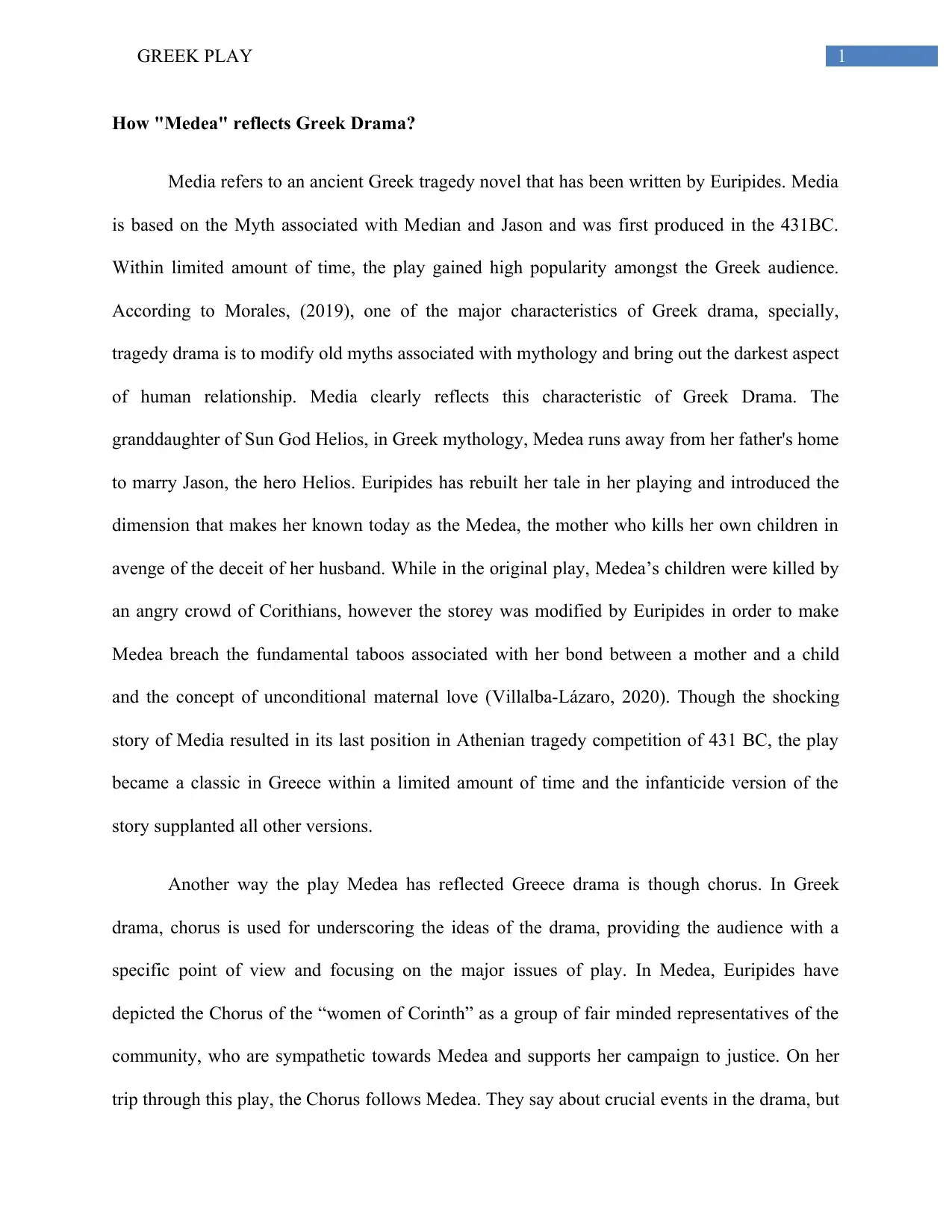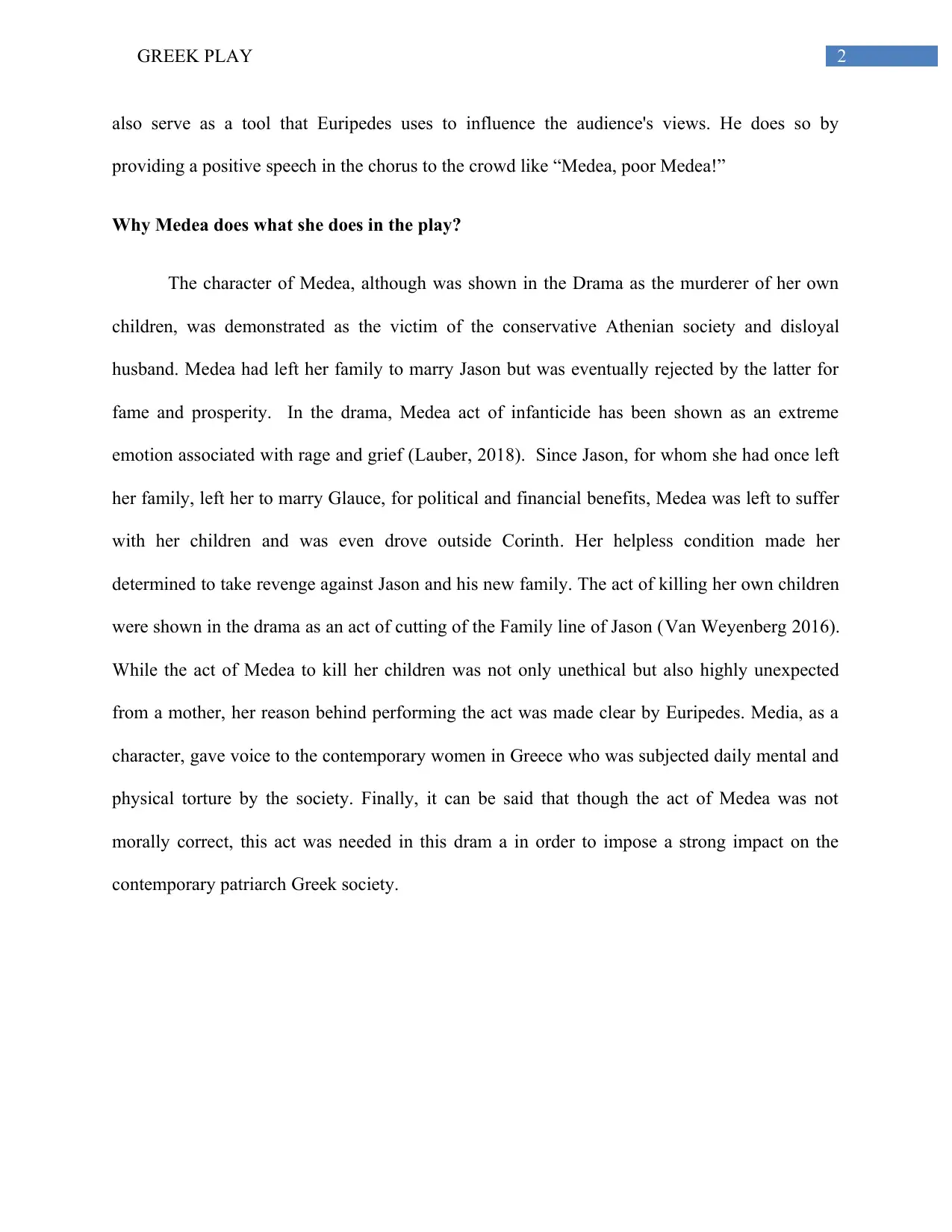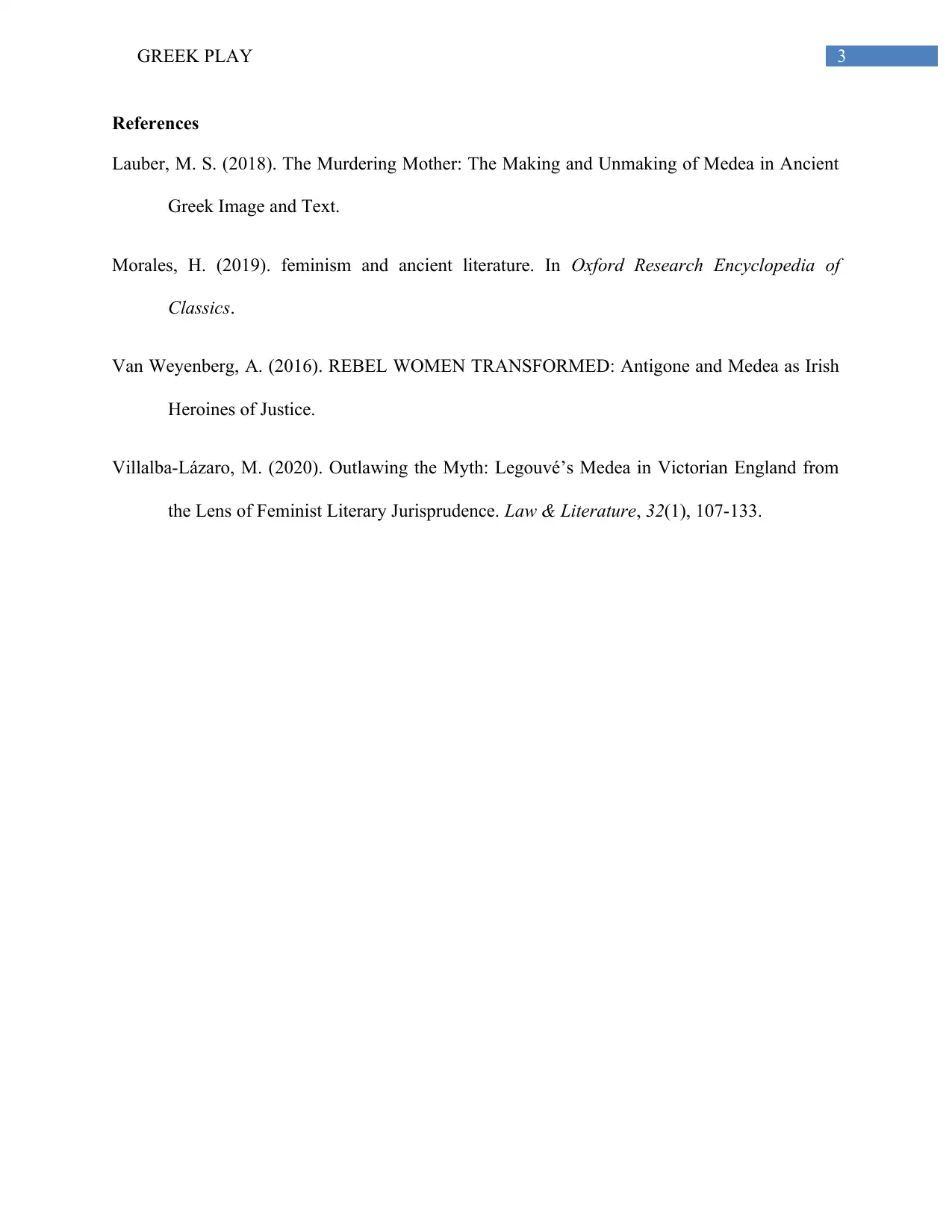An Analysis of How Medea Embodies Greek Dramatic Conventions
VerifiedAdded on 2022/09/18
|4
|810
|33
Essay
AI Summary
This essay examines Euripides' play, Medea, and its reflection of key characteristics of Greek drama, particularly tragedy. The essay analyzes how Medea embodies the modification of myths, focusing on the darker aspects of human relationships as seen in the protagonist's actions. It explores the role of the chorus in underscoring ideas and influencing the audience's perspective. The essay delves into Medea's motivations, presenting her as both a victim of societal constraints and a figure driven to extreme actions by grief and betrayal. It also discusses the play's impact on the contemporary Athenian society, highlighting the themes of infanticide, maternal love, and the subjugation of women. The essay concludes by emphasizing the significance of Medea's actions in challenging the patriarchal norms of the time.
1 out of 4






![[object Object]](/_next/static/media/star-bottom.7253800d.svg)